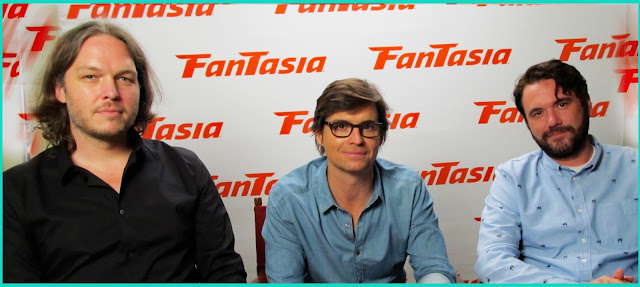 |
| From left to right: writer & director Jacob Gentry, actor in lead role Chad McKnight & actor in supporting role AJ Bowen Photo © Lena Ghio 2015 |
LG- When you began imagining the story you decided to engage the assistance of a physicist?
JG- His name is SEAN CARROLL and I was connected to him through this amazing organization called The Science and Entertainment Exchange. This organization works to help provide accurate scientific information for movies or television. It is a free service that anyone can call. So if you are making a movie that involves science and you want to have responsible science in your movie, you just call them up and they will pair you with a reputable scientist. In this case I was paired with Sean Carroll who is one of the foremost cosmologists in the field. I read some of his books before I met with him and I tried to learn a lot about the stuff he knows and it was very difficult to keep up. But he was very reassuring and very helpful.
LG- The idea of TIME is the question of the day for many physicists at every level whether it be the quantum level or the cosmological level. In the movie you make a reference to a graviton resonance, the graviton is not a proven molecule but how does it fit in with the theory of time travel you are exploring in the movie?
JG- Ultimately, because it is all theoretical at this point, I used as much theoretical information as possible to create a believable, a somewhat believable wormhole. Ultimately a wormhole like that, just to open it in the first place would take astronomical amounts of energy. At this point, we have no idea how to attain such energy. So at this point we had to assume that Jim Beale, the inventor of the time machine, had come up with something to fuel the wormhole. The concept that he found a solution is the reason the story is set in a possible future time frame instead of in the present time frame version of our world. Perhaps in his parallel timeline, in an alternate universe, they would have been able to conceive this fuel that we refer to in the movie as MRD, which is a radioisotope, a combination of special elements that powers it. In the movie MRD costs millions of dollars. The inventor is suspicious that there could be corporate espionage going on. Within the construct of the story I ask how can we connect the things that would open a wormhole and then would they be strong enough to keep it stable and make it traversable. Science today cannot even conceive how we would create an actual wormhole, much less the other things like keeping it stable, being able to open it to a specific time and place. That is why it is fun to explore these things in a science-fiction movie and why the responsible science aspect is important to make the audience feel this is a possibility at some point in the human future. Its more exciting that way.
LG- And then, near the end of the story, I thought you pulled an amazing rabbit out of the hat, and I don't even know if you are aware of it. Up until that point the inventor is traveling through time using his wormhole technology but then the female character Abby, played by BRIANNE DAVIS, introduces us to the Theory of Extra Dimensions. From what I have read on this theory, you may not even need a wormhole to travel through time at a certain point because you can do it through extra dimensions. This is a fascinating leap you did in the story and I want your take on it. Were you aware that you were introducing this quest for the Theory of Extra Dimensions into the plot's dénouement?
JG- Of course I was aware! I found it an interesting notion.
LG- It is also fascinating to me that it is your female character that makes us aware of this scientific quest with her own research.
JG- She is the one who actually brings everything together. I wanted to turn the concept of a femme fatale on its head. Which means that in the beginning she represents the way women in the last mid-century were shown in movies and then ultimately becomes someone who can see through all of the emotional turmoil the male character is experiencing. He is the one who cannot let his emotion get out of the way long enough to make clear headed scientific decisions and she is the one who has been researching him for her science-fiction novel, which is a book evolving within the movie. In it, she is able to hypothesize on time travel better than he could and we question "where did she get this information"? I thought this was the most fun part of the movie, trying to figure out where the theories come from? Are they correct? How does that apply to the emotional story?
LG- Here is my last question: the title of your movie, SYNCHRONICITY, seems to fit better with the final dénouement of the story than it does with the concern of time travel that fills the first segments. Synchronicity implies events that are related by meaning but not causality and when Abby puts her cards on the table near the end, we are thrown into a whole new perspective of the film that supports what that word means.
JG- I felt the same way. When I happened on the word synchronicity as the title for this movie I had already written the story. When I read the definition, I was amazed that there was this word that resumed the themes I wanted to explore in the movie of two things being related but not by causality. I was questioning whether there is a spiritual dimension in this? How can we define these abstract concepts? With pragmatic scientific concerns or spiritual philosophical concerns? And where do human emotions like love, longing and jealousy fit into the equation?
Meaning of synchronicity: https://en.wikipedia.org/wiki/Synchronicity
You can see this movie @ FANTASIA FESTIVAL this July 30th I hope that knowing more about its scientific underpinnings will add to your enjoyment of this sci-fi thriller with a twist!
-LENA GHIO


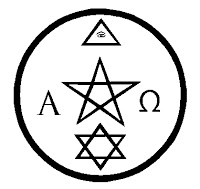














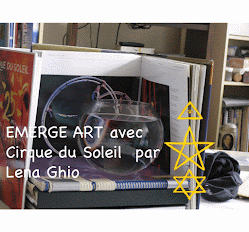
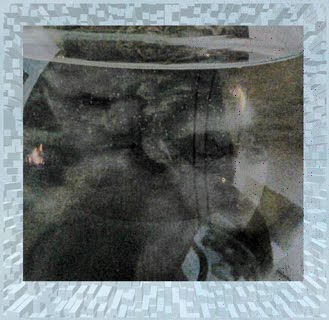




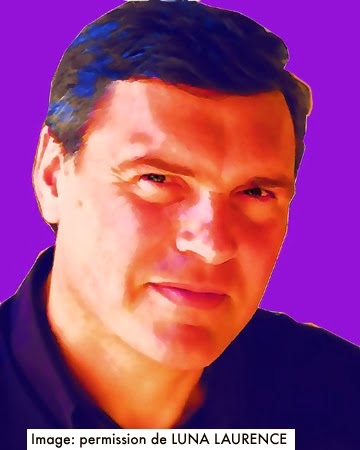
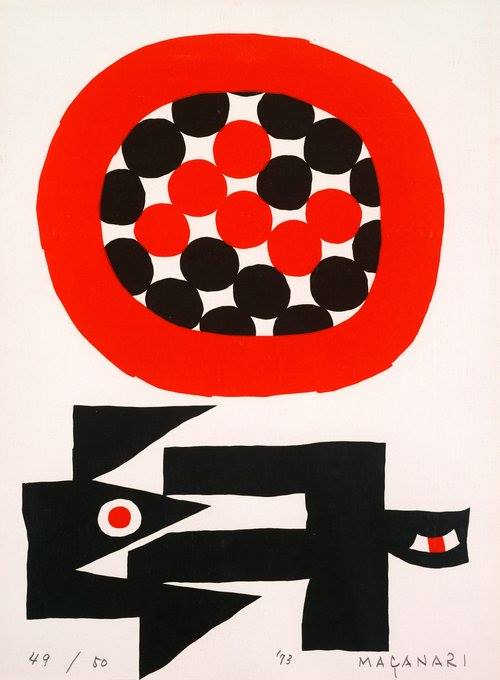

No comments:
Post a Comment